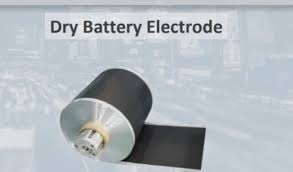
Breaking News
 US Deploys F-22 Fighter Jets to Southern Israel as Massive Military Buildup Continues
US Deploys F-22 Fighter Jets to Southern Israel as Massive Military Buildup Continues
 Elon Musk 'Legacy media lies relentlessly' from clip: It is the media that is racist'
Elon Musk 'Legacy media lies relentlessly' from clip: It is the media that is racist'
 Zohran Mamdani forces cops to pray to Allah (2nd clip) – He and AOC announce free health care...
Zohran Mamdani forces cops to pray to Allah (2nd clip) – He and AOC announce free health care...
 Why Can't We Thrive Like 1905?
Why Can't We Thrive Like 1905?
Top Tech News
 New Spray-on Powder Instantly Seals Life-Threatening Wounds in Battle or During Disasters
New Spray-on Powder Instantly Seals Life-Threatening Wounds in Battle or During Disasters
 AI-enhanced stethoscope excels at listening to our hearts
AI-enhanced stethoscope excels at listening to our hearts
 Flame-treated sunscreen keeps the zinc but cuts the smeary white look
Flame-treated sunscreen keeps the zinc but cuts the smeary white look
 Display hub adds three more screens powered through single USB port
Display hub adds three more screens powered through single USB port
 We Finally Know How Fast The Tesla Semi Will Charge: Very, Very Fast
We Finally Know How Fast The Tesla Semi Will Charge: Very, Very Fast
 Drone-launching underwater drone hitches a ride on ship and sub hulls
Drone-launching underwater drone hitches a ride on ship and sub hulls
 Humanoid Robots Get "Brains" As Dual-Use Fears Mount
Humanoid Robots Get "Brains" As Dual-Use Fears Mount
 SpaceX Authorized to Increase High Speed Internet Download Speeds 5X Through 2026
SpaceX Authorized to Increase High Speed Internet Download Speeds 5X Through 2026
 Space AI is the Key to the Technological Singularity
Space AI is the Key to the Technological Singularity
 Velocitor X-1 eVTOL could be beating the traffic in just a year
Velocitor X-1 eVTOL could be beating the traffic in just a year
Tesla's Maxwell Dry Battery and a Five Year Lead on the World

Maxwell has a path with 15-25% improvement every 2-3 years. This should lead to 500 Wh/kg by 2027. This would give Tesla a 5 year battery lead on the rest of the world. Tesla could get a three year pure technology lead and a two year lead by more rapidly scaling production at its gigafactories. Tesla could reach $50 per kilowatt-hour with 500 Wh/kg. This would mean half the weight in batteries while producing the save level of energy as the best 250 Wh/kg batteries of today. This would mean $4000 instead of $12000 in batteries for an 80 kWh battery pack. This would enable far better electric trucks. Electric semi-trucks need to use up nearly half of their cargo capacity on heavy batteries. Energy dense batteries will make longer range electric trucks with competitive cargo capacity. The batteries could also enable electric planes to be competitive flying 100-200 passengers from Los Angeles to San Francisco. The batteries will make new disruptive products feasible. Japan and China's government battery programs have each targeted 500Wh/kg. The US DOE has a similar battery program called Battery500. There are various programs mostly focused around solid state batteries and lithium sulfur batteries. Both have had some commercialization with gadgets or applicances but not cars. They are targeting the same kind of performance as Tesla's Dry battery technology. However, it currently appears that Tesla could have an advantage getting the new technology into cars and using them to lower costs and boost performance.



